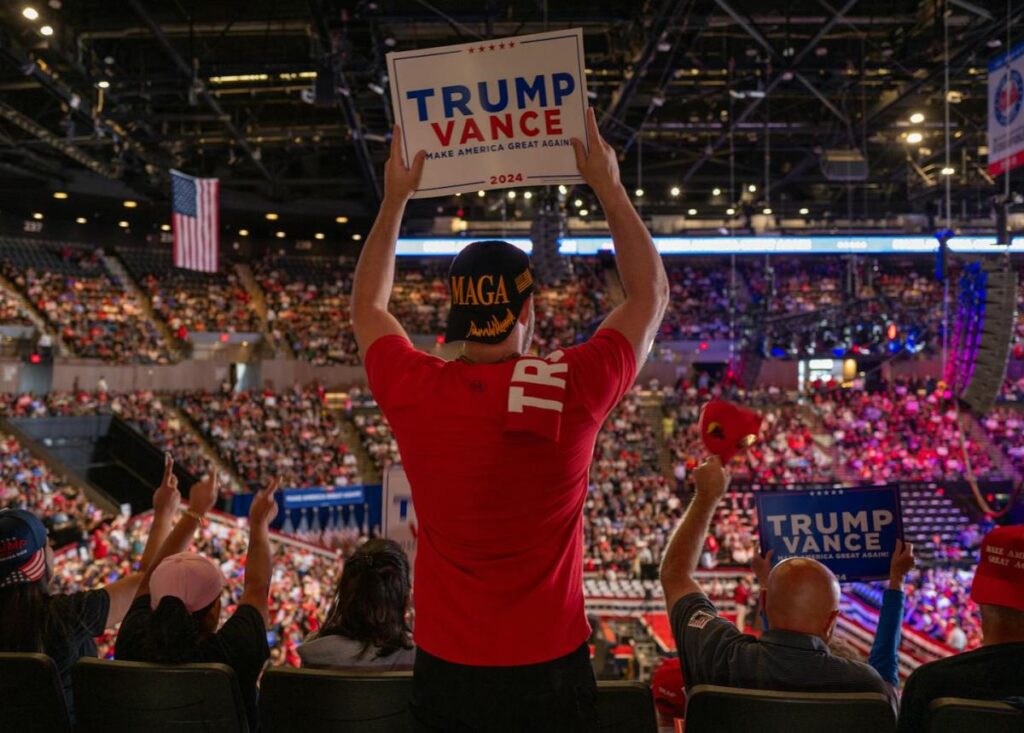In the current political landscape, the stark divide between Trump supporters and his critics illuminates a complex web of beliefs and motivations influencing voters’ choices. Critics of Donald Trump, particularly those on the left, point to a variety of controversies that they believe disqualify him from the presidency. These include his impeachment trials, multiple criminal indictments, and a felony conviction, as well as accusations of being a threat to democracy, a misogynist, a racist, and a habitual liar. While approximately 78% of Democrats view Trump’s actions to overturn the 2020 election as illegal, this perspective starkly contrasts with the beliefs of many Republicans, with less than half believing he did anything wrong. Understanding the intricacies that drive Trump’s supporters is crucial in explaining the motivations behind their continued endorsement of the former president.
As an anthropologist specializing in peace and conflict, my study of what I call the “Trumpiverse” began in 2015, when Trump first launched his candidacy for president. I have delved deeper into what is termed toxic polarization, where people become increasingly entrenched in their opposing views. Through attending rallies, events, and discussions aimed at bridging the gap between Democrats and Republicans, I have witnessed firsthand the diverse motivations of Trump voters. Contrary to the stereotype of Trump supporters being solely uneducated “deplorables,” they represent a varied demographic. Many are older, white, rural, religious individuals, but the demographic also includes moderates and others who have specific, thoughtful reasons for their support, despite being caught up in the larger narrative shaped by media and politicians.
One key reasoning for supporting Trump relates to perceptions of media bias—referred to by critics as Trump Derangement Syndrome (TDS). Many Trump supporters argue that the left-leaning media distorts his words and actions, creating an adverse public perception. This narrative is further complicated by accusations of a “deep state” conspiracy involving a coalition of leftists and elements within the government that avoid scrutiny or backlash. Trump’s notion of being persecuted resonates with his base, particularly in light of legal battles faced by supporters of the January 6 rioters. For many, these perceived injustices only bolster their loyalty to Trump.
Another pivotal factor driving Trump support is economic concern. Many voters recall Trump’s presidency positively, associating it with economic growth, tax cuts, and a robust stock market before the onset of the COVID-19 pandemic. Under Biden, while employment and wages have reportedly increased, many Trump supporters feel the sting of inflation, which soared during Biden’s term. They grapple with everyday economic challenges, and for some, the Biden administration’s policies appear less favorable in comparison to their experiences during Trump’s term. Polls show that Trump remains highly regarded among Republicans for his handling of economic issues, underscoring the importance of these financial concerns to his base.
Immigration continues to be another significant reason for strong Trump support. Many supporters perceive a crisis at the southern border, attributing the rise in illegal crossings primarily to Biden’s policies. Concerns about demographic changes and potential threats to jobs stir emotions, fueling the narrative of a “border invasion.” Trump’s promise to build a wall and enforce strict immigration policies resonates deeply with his supporters, many of whom characterize unchecked immigration as a tactic by Democrats to politically undermine conservatives. For 82% of Republicans, immigration remains an urgent issue, highlighting a fear that fuels their desire to support Trump’s approach.
Lastly, Trump’s personal style and persona play a crucial role in garnering support. As many of his detractors lament his approach to governance, seeing it as a decay of democratic norms, Trump voters admire him for his combative spirit and willingness to stand up against a perceived “radical left” agenda. This perception frames him not merely as a candidate, but as a heroic figure destined to rescue America from decline. To his supporters, Trump embodies a movement, encapsulated in the slogan “Make America Great Again.” This belief in his ability to confront significant challenges—domestic unrest, international threats, and economic instability—fuels a sense of loyalty and hope among his supporters.
In conclusion, Trump supporters are often characterized by a variety of motivations that may not be immediately visible to critics. Media biases, concerns over economic stability, fears regarding immigration, and admiration for Trump’s combative approach all contribute to the unwavering support he receives, even in the face of numerous controversies. Understanding the multifaceted reasoning behind their choices is essential for bridging the growing ideological chasms within contemporary American politics. As the 2024 election approaches, these intricate dynamics will likely continue to shape the discourse around Trump, his supporters, and those who oppose him.

